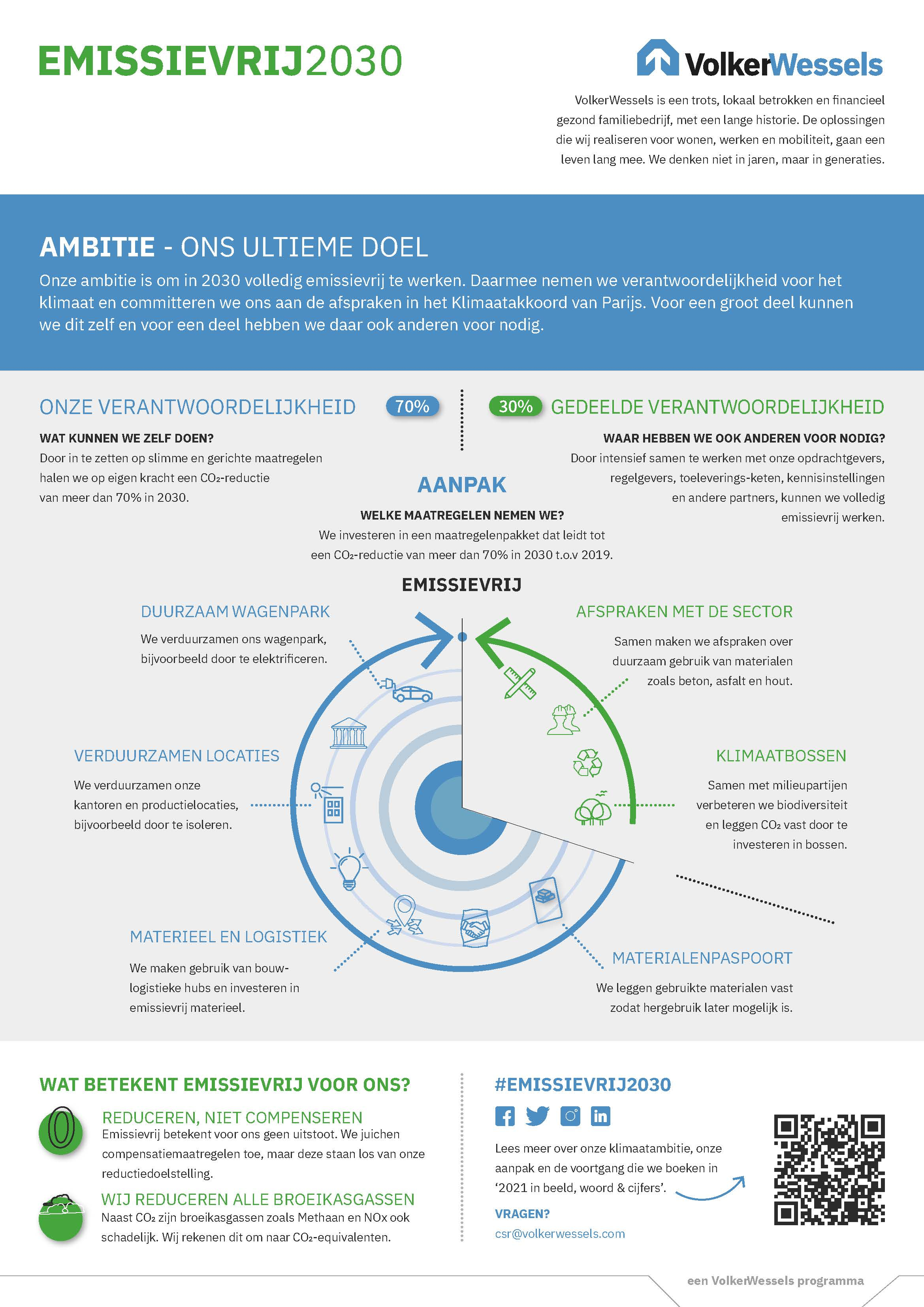VolkerWessels goes for emission-free by 2030
Emission-free by 2030. Or in other words: in eight years time, no more harmful emissions of greenhouse gasses in our projects and in our business operations. That is the ambition of VolkerWessels, which is part of the climate strategy.

Jan de Ruiter, Chairman of the Board of Management, explains the ambition to be an emission-free company by 2030: "VolkerWessels is a proud, locally involved and financially healthy family business with a long history. The solutions that we create for living, working and mobility last a lifetime. We do not think in terms of years, but in terms of generations. With this in mind, we want to take responsibility for the climate and we are committed to the agreements in the Paris Climate Accord.
This also includes a firm ambition to match the ambitions of our clients: emission-free by 2030. To a large extent we can achieve this ourselves, for the remaining part we also need others."

OUR RESPONSIBILITY
By focusing on smart and targeted measures, we will achieve a CO2 reduction of more than 70% by 2030. This means we will achieve our fair share based on the science-based target methodology. To this end, we are taking measures such as making our vehicle fleet and office locations more sustainable, investing in emission-free equipment and using construction logistic hubs. The exact measures will be worked out and determined for each division.
Shared responsibility
To be able to work completely emission-free, we are also partly dependent on others. We therefore seek intensive cooperation with our clients, regulators, the supply chain, knowledge institutes and other partners. For example, we make joint
agreements on the sustainable use of materials such as concrete, asphalt and wood. To counteract the effects of climate change, we invest jointly in biodiversity and the climate resistance of forests.
Lars van der Meulen, director of sustainability: "Emission-free in 2030 is a tightening of our strategy that includes a number of very concrete measures. It is also a way of bringing focus to our policy and clearly explaining to the market what we stand for and what we want to achieve. We are transparent about our goals, what we take responsibility for and what challenges we face."